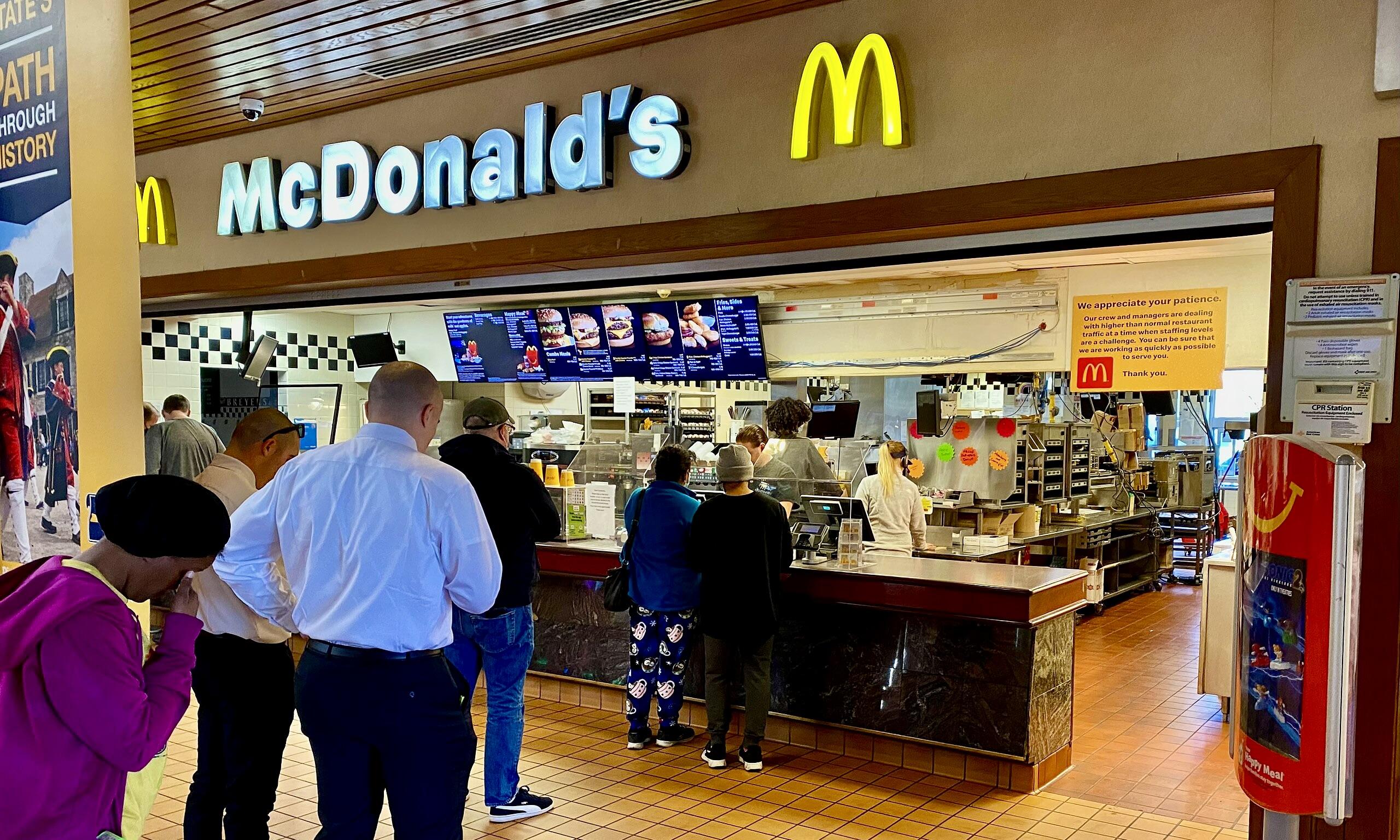McDonald's has requested a hearing from the U.S. Supreme Court to establish whether franchises can enforce rules against hiring employees from other franchisors within the same chain. The company submitted the appeal on November 21, signaling its intent to address this contentious issue.
It's noteworthy that McDonald's, the global fast-food giant with over 2 million workers across approximately 40,000 franchised restaurants, recently discontinued its no-poach rule in franchise agreements.
Federal Courts Weigh In
In a pivotal case with significant implications for the franchise industry, McDonald's franchise operators were previously bound by a no-poach clause. This agreement prevented hiring another franchisor's employees or those employed directly by McDonald's within six months following the employee's departure from either entity. Additionally, franchisees were prohibited from soliciting employees from other franchises under a separate clause.
The legal battle surrounding these no-poach agreements has gone through the federal court system. In June 2022, a federal district court rejected employees' argument that the no-poach rule violated the Sherman Antitrust Act. However, in a significant turn of events, the 7th U.S. Circuit Court of Appeals determined that the lower court had prematurely dismissed the case in August 2023. The judgment was vacated, and the case was remanded for further proceedings.
SHRM reported that the 7th Circuit's decision raises the bar on proving the ancillary nature of such restraints, making it more challenging for companies to defend their usage. Although the court did not explicitly declare McDonald's no-hire provisions as non-ancillary restraints, a comprehensive economic analysis must now be conducted to establish their qualification as such, as per Restaurant Dive.
One notable instance that propelled the no-poach issue into the spotlight occurred in 2017 when a McDonald's manager filed a class-action antitrust suit against the corporation. She detailed how restrictive anti-poaching agreements prohibited her from accepting a higher-paid job at another McDonald's franchise. McDonald's has claimed that these agreements were crucial for preventing the loss of training costs, maintaining consistency and quality, and curbing the poaching of employees by franchisees.
Implications for HR Professionals
The U.S. Department of Justice showcased their emphasis on this matter with the release of guidance for HR professionals in 2016. Within this document, the agency dedicated nine mentions to no-poach agreements, signaling its prioritization of addressing this concern. The forthcoming Supreme Court decision will likely bring HR practices around no-poach agreements under greater scrutiny and clarify their legality.



 SpaceX Pivots Toward Moon City as Musk Reframes Long-Term Space Vision
SpaceX Pivots Toward Moon City as Musk Reframes Long-Term Space Vision  Trump Lawsuit Against JPMorgan Signals Rising Tensions Between Wall Street and the White House
Trump Lawsuit Against JPMorgan Signals Rising Tensions Between Wall Street and the White House  Anta Sports Expands Global Footprint With Strategic Puma Stake
Anta Sports Expands Global Footprint With Strategic Puma Stake  Uber Ordered to Pay $8.5 Million in Bellwether Sexual Assault Lawsuit
Uber Ordered to Pay $8.5 Million in Bellwether Sexual Assault Lawsuit  Trump Backs Nexstar–Tegna Merger Amid Shifting U.S. Media Landscape
Trump Backs Nexstar–Tegna Merger Amid Shifting U.S. Media Landscape  Ghislaine Maxwell to Invoke Fifth Amendment at House Oversight Committee Deposition
Ghislaine Maxwell to Invoke Fifth Amendment at House Oversight Committee Deposition  China Overturns Death Sentence of Canadian Robert Schellenberg, Signaling Thaw in Canada-China Relations
China Overturns Death Sentence of Canadian Robert Schellenberg, Signaling Thaw in Canada-China Relations  Once Upon a Farm Raises Nearly $198 Million in IPO, Valued at Over $724 Million
Once Upon a Farm Raises Nearly $198 Million in IPO, Valued at Over $724 Million  Panama Supreme Court Voids CK Hutchison Port Concessions, Raising Geopolitical and Trade Concerns
Panama Supreme Court Voids CK Hutchison Port Concessions, Raising Geopolitical and Trade Concerns  Meta Faces Lawsuit Over Alleged Approval of AI Chatbots Allowing Sexual Interactions With Minors
Meta Faces Lawsuit Over Alleged Approval of AI Chatbots Allowing Sexual Interactions With Minors  Jerome Powell Attends Supreme Court Hearing on Trump Effort to Fire Fed Governor, Calling It Historic
Jerome Powell Attends Supreme Court Hearing on Trump Effort to Fire Fed Governor, Calling It Historic  Toyota’s Surprise CEO Change Signals Strategic Shift Amid Global Auto Turmoil
Toyota’s Surprise CEO Change Signals Strategic Shift Amid Global Auto Turmoil  Missouri Judge Dismisses Lawsuit Challenging Starbucks’ Diversity and Inclusion Policies
Missouri Judge Dismisses Lawsuit Challenging Starbucks’ Diversity and Inclusion Policies  US Judge Rejects $2.36B Penalty Bid Against Google in Privacy Data Case
US Judge Rejects $2.36B Penalty Bid Against Google in Privacy Data Case  Trump Administration Sued Over Suspension of Critical Hudson River Tunnel Funding
Trump Administration Sued Over Suspension of Critical Hudson River Tunnel Funding  U.S. Condemns South Africa’s Expulsion of Israeli Diplomat Amid Rising Diplomatic Tensions
U.S. Condemns South Africa’s Expulsion of Israeli Diplomat Amid Rising Diplomatic Tensions 































